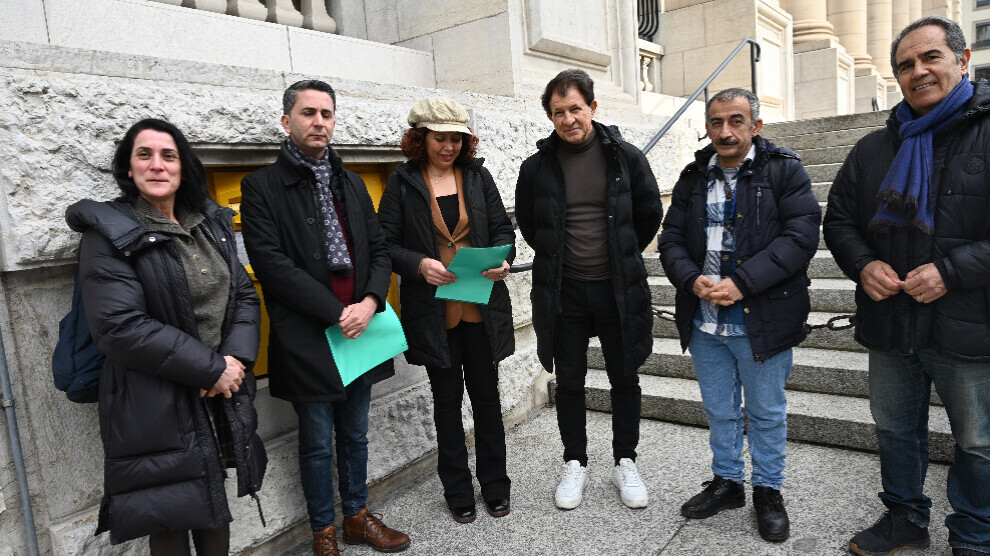Kurdish Language Platform sends letter on mother tongue to UNESCO
The Kurdish Language Platform sent a letter to UNESCO about the "serious threats to the Kurdish language in Iran, Syria, Turkey and the diaspora."
The Kurdish Language Platform sent a letter to UNESCO about the "serious threats to the Kurdish language in Iran, Syria, Turkey and the diaspora."

The Kurdish Language Platform (SEKO-Kurdistan), bringing together the three Kurdish associations based in Geneva, sent a letter to UNESCO about the "serious threats to the Kurdish language in Iran, Syria, Turkey and the diaspora." The letter said: "Article 15 of the Iranian Constitution states that the teaching of ethnic languages and literatures at school level is free. However, despite the importance of language and culture in the international community, no effective action is taken to teach these languages in schools in Iran (CSDHI, February 21, 2021).
In Turkey, as the Constitution denies the Kurds the status of a national minority, the teaching of their language is prohibited in public schools, an absurd situation (Courrier International, October 20, 2010). Kurdish is the lingua franca of approximately 45 million people, living mainly in a vast territory in the Middle East that Kurds and geographers call Kurdistan, shared between Turkey, Syria, Iraq and Iran in the aftermath of the First World War. The Kurdish language is part of the Iranian language group of the great Indo-European language family (Revue Études Kurdes, May 2008)."
The letter added: "Heir to a thousand-year-old history and culture, the Kurdish language is today facing challenges of such magnitude that they jeopardize its very survival (Kurdish Institute of Paris, 2019).
UNESCO advocates for mother tongue-based multilingual education from the earliest years of schooling. Research shows that mother tongue education is a key enabler of inclusion and quality learning, and improves academic achievement and performance (UNESCO, 23 February 2022). When children learn in their mother tongue, they navigate knowledge with confidence and ease. Concepts become clearer, ideas flow freely, and the joy of discovery is amplified (UNICEF, 20 February 2024)."
The letter continued: "It is imperative to recall the provisions of international legal instruments that support education in the mother tongue and the protection of endangered languages.
We respectfully request you to support this convention and actively promote Kurdish and multilingual education in areas where the Kurdish language is endangered.
Concrete proposals:
We invite you to consider the following proposals to support the teaching of the Kurdish language in schools in the countries mentioned and to ensure that governments respect the linguistic rights of Kurdish children.
1. Advocacy for Kurdish mother tongue education: UNESCO could initiate an awareness-raising campaign with the governments of Turkey, Iran and Syria, highlighting the importance of mother tongue education as a fundamental right of children. This campaign could include testimonies from researchers, linguists and education experts, as well as recommendations on how to gradually introduce Kurdish in schools.
2. Support for the establishment of Kurdish school curricula: UNESCO could support local initiatives by providing educational resources and training for Kurdish teachers. This includes the creation of textbooks, teaching guides and the training of qualified teachers in areas where Kurdish is spoken, in collaboration with Kurdish communities and local education authorities.
3. Building international partnerships: UNESCO could facilitate the creation of partnerships with international educational institutions to promote the teaching of Kurdish in schools. For example, agreements with universities or training centres in linguistics and education could be established to support the integration of the Kurdish language into the school curriculum in the three countries.
4. Monitoring and implementation of linguistic rights: It is essential that UNESCO monitor the implementation of the recognition of linguistic rights in education in Turkey, Iran and Syria. We propose that an independent monitoring mechanism be established to guarantee mother tongue teaching, while ensuring that the authorities respect international commitments on education and linguistic rights."